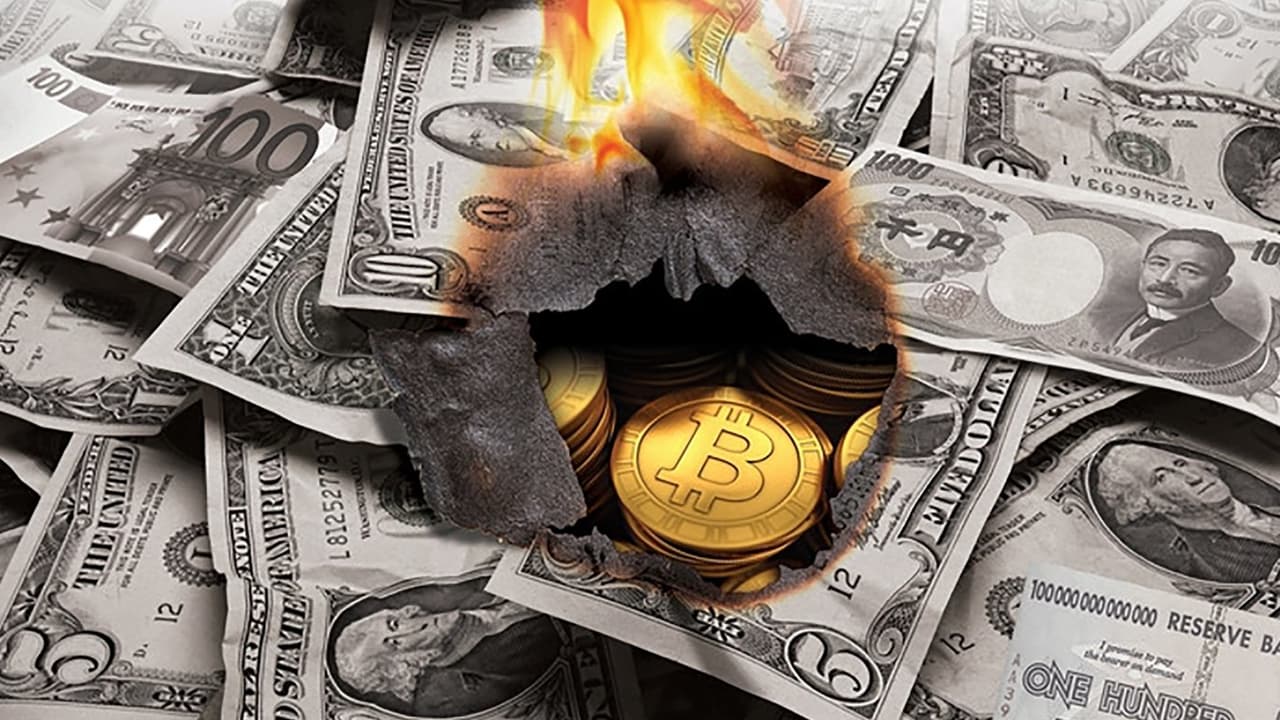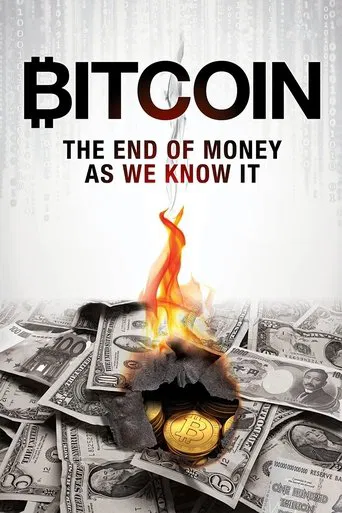smilegel
90% of this documentary is about money, including history of money - which is pretty informative. Authors certainly had the right idea with the movie to show how our current currency isn't working that well. I can only assume they are deeply invested in this digital currency as they certainly pushing it. Instead of providing more info and ideas on how to fix the system, they are trying to prove to the viewer how bitcoin is the answer - and it's NOT. At least not currently in its present form. I'll start this by saying. PLEASE PLEASE do NOT buy the idea of bitcoin. This is not a currency,but more like a stock that goes up and down. In 2011 it was nearly worthless then around 2014 it was worth around $1200 then went down to less than $180. It's definitely not an investment in any way or form. It's casino platform with bitcoin as a chip. An average person has no use of bitcoin. It's an excellent way for criminals to receive payments and perhaps geeks who just like new stuff. Truth is, bitcoin is not the only digital currency. There are 1000s of them,but it's the most known and valued. A lot of bitcoin users are gamblers and if you Gooogle, you will find 1000s upon 1000s of stories about people losing everything because they bought it at one price,but then it went down and they had to sell it to recover at least some. Those who bought bitcoin in 2014 for $1200 expected it to go up and unfortunately it went down and I know a few people who bought $100,000s worth of of bitcoins which later became worth 10 times less. So authors of this movie failed to provide all of this information to the viewer as they are clearly bias. Not even going to mention the 10 star reviews from those who've never reviewed anything - just makes me question the legitimacy of this documentary. If they truly had viewers interests in mind, they would include all the things I provided in detail instead of forcing the viewer to see how bitcoin is the solution.5/10
Demetrick Ferguson
This film does a brilliant job of making the point why Bitcoin is a necessary entity in our modern existence. People need options...people need a bonafide way to hold their governments accountable, and this film shows why bitcoin is that tool of accountability. It's short, sweet, and doesn't skip a beat. This film is a must watch and must show. Sit down and dig in. And, Optimus Prime does the narration...j/k, but seriously go watch it. If you are your friends have any friends that have gone completely bonkers over bitcoin, then this film will show you why. It isn't heavy on the technical jargon and makes bitcoin a very approachable topic of interest. You will leave this film with a much better understanding for the need of a digital economy.
Steve Pulaski
Bitcoin: The End of Money as We Know It is an hour-long documentary, split into two halves - one half focusing on the history of money and how the United States' currency went from being backed by gold to being backed by faith, and the other half, focusing on the potential of the digital "cryptocurrency" known as "Bitcoin" - predominately made up of infographs and charts to make its information digestible. We learn the philosophical idea behind currency, most importantly, how it is not created in addition to a government, but rather, long before any kind of government to establish some manner of obtaining scarce resources, and see how the idea of a currency dominated by governments and banks may be a thing of the past when it comes to Bitcoin.I already did my best to explain what a Bitcoin was in my review for The Rise and Rise of Bitcoin - a documentary to which this particular film inevitably suffers by comparison, so I'll exercise brevity in trying to nail all the major points again. Bitcoin is a global, decentralized currency, not created nor distributed from a central location such as the Federal Reserve. Because of this, there is no sole owner of Bitcoin, for it exists on thousands of computers, with numerous tech-savvy internet users tracking, verifying, and distributing the digital currency - these people are known as "Bitcoin miners." The distribution of Bitcoins are kept on a digitized ledger, and, similar to filesharing, Bitcoin is transmitted in a peer-to-peer fashion. Finally, no more than twenty-one million Bitcoins will ever exist, making Bitcoin the first ever currency to have a cap. This prevents any kind of Federal Reserve practice such as "quantitative easing" from taking place in a time of economic disparity.One interviewer in Bitcoin: The End of Money as We Know It refers to Bitcoin as potential for being a microeconomic worker, something that operates on a small scale of firms and businesses, or a macroeconomic wrecking-ball, something that can have leverage in the economy and influence the currency distribution around the world. Unlike with the U.S. Dollar, or for that matter, any currency from the Japanese Yen to the Russian Ruble, there is no middleman with the way Bitcoins are distributed. Not only is there no Federal Reserve, boasting an endless supply of Bitcoins, there's also no credit card company and no shady banking system. Bitcoin is the first currency to be created, dominated, and, most importantly, distributed by people.Hundreds of years ago, when communities were small tribes, people's debits and credits were internalized in the mind of the individual, with no banking system whatsoever. The currency at the time was known as "commodity money," tangible items that had to be a combination of scarce, recognizable, divisible, portable, and easily distributed, such as grains, gold, or metal to be viewed as probable vehicles of transactions. Directors Torsten Hoffmann and Michael Watchulonis spend the first half hour outlining the history of paper currency's rise to dominance, particularly in the United States, with the creation of government bonds following acts of war and impending war debt and the government's response to The Great Depression. Upon spiraling into one of the worst depressions ever seen in the world, an embargo on gold was put into place and the U.S. relied on fiat money. Fiat money, in essence, is money backed by nothing other than your faith and trust in your government. It can be retracted or deemed worthless just as quickly as it was printed or handed to you by a clerk or your boss.Bitcoin: The End of Money as We Know It tells its story largely through graphs and statistics, making it one of those documentaries you either choose to trust upon hearing the information or spend hours fact-checking online to see if its claims hold weight. The balance Hoffmann and Watchulonis achieve with statistics and interviews, largely from CEOs of websites, Bitcoin miners and organizers, and so forth, more or less make you forget that you're watching a documentary with more computer animation than some animated films.The documentary's presentation is one that mirrors propaganda, in the way that it appeals to people by illustrating a black and white dichotomy, in this case, presenting the dollar and the American banking system as evil and Bitcoin and its process as flawless systems you must trust in order to be part of the digital revolution (aka "the winning side"). The Rise and Rise of Bitcoin presented the digital currency with all its flaws and potential shortcomings in tact, in addition to having skeptics have a say just as much as those who were furthering Bitcoin's progress and significance in their own homes. The End of Money as We Know It lacks that well-roundedness, and with all the time spent on detailing the history of currency, complex, lofty ideas of Bitcoin, its operations, and its rise are sacrificed in depth and illustration because of the concise runtime.Bitcoin: The End of Money as We Know It may make a serviceable starting place for someone who has no idea what Bitcoin or its operation is, however, with a more elaborate and rounded documentary not far out of reach, it falls short in terms of trying to justify its existence.Directed by: Torsten Hoffmann and Michael Watchulonis.

